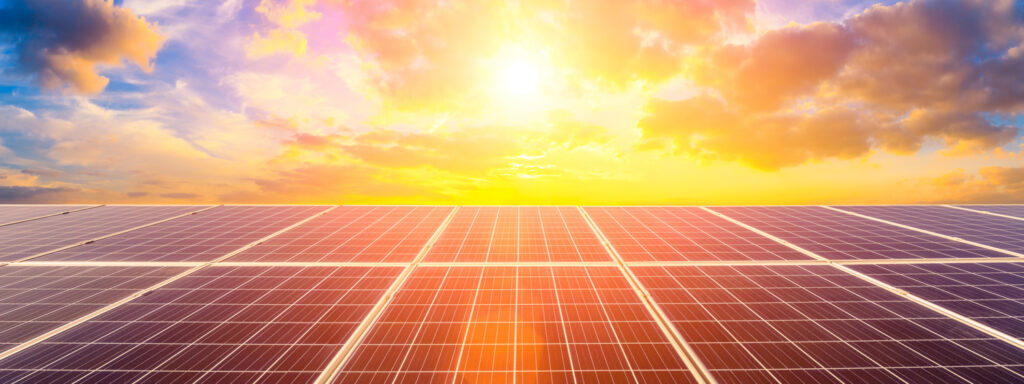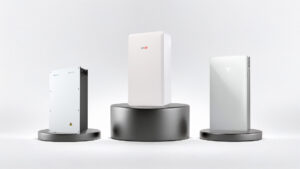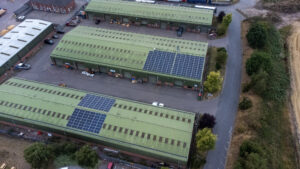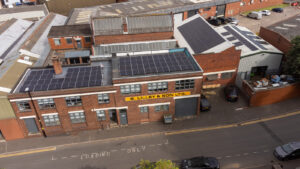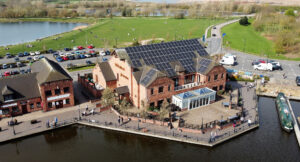Solar panels have become a popular renewable energy solution for homes and businesses alike. However, a common question arises: Do solar panels need direct sunlight to be effective? Many people believe that solar panels only work on bright, sunny days, but the truth is more nuanced. In this blog, we’ll debunk myths, explain how solar panels work, and look into their performance in various weather conditions.
How solar panels work
To understand whether solar panels need direct sunlight, it’s important to know how they generate electricity. Solar panels use photovoltaic (PV) cells to convert sunlight into electricity. These cells absorb photons from sunlight, creating an electric current.
While direct sunlight maximises efficiency, solar panels can still produce electricity in indirect sunlight, such as on overcast or cloudy days. This is because PV cells can capture diffuse sunlight, which is scattered by clouds or reflected off surfaces.
Do solar panels need direct sunlight?
The short answer is no, solar panels do not require direct sunlight to function. However, the level of sunlight does affect their efficiency. Let’s break it down:
- Direct sunlight:
- Solar panels perform at their best when exposed to direct sunlight, as the intensity of sunlight is highest.
- This results in maximum energy production, making clear, sunny days ideal for solar power generation.
- Indirect sunlight (cloudy days):
- Even without direct sunlight, solar panels can still produce electricity using diffuse light.
- On cloudy days during autumn and winter, our data from Kembla’s installed systems shows efficiency dropping to 10–25% of peak performance, depending on cloud density. However, even in these seasons, the systems consistently maintain this range.
- Shaded areas:
- Partial shading can significantly reduce energy output, particularly in traditional string inverter setups.</li
- The majority of Kembla systems we install feature SolarEdge or Enphase Microinverters, to effectively mitigate this issue.
Maximising solar panel efficiency
Even if direct sunlight isn’t always available, there are ways to optimise your solar panel system for consistent energy production:
- Choose the Right Location:
Install panels in areas with maximum sun exposure throughout the day. - Tilt and Angle Adjustment:
Ensure panels are positioned at the optimal angle for your location to capture the most sunlight. - Invest in Advanced Technology:
To improve performance in low-light conditions or shaded environments, consider utilising modern solar technology such as SolarEdge Optimised Systems or Enphase Microinverters. Both options are excellent for increasing energy generation in less-than-ideal sunlight conditions, providing more consistent power output throughout the day. - Protect Your Renewable Investment:
Protect your renewable investment through maintenance. We recommend regular performance monitoring, electrical testing and component inspection.
FAQs
- Do solar panels work at night?
No, solar panels require sunlight to generate electricity. However, energy stored in solar batteries or fed into the grid during the day can be used at night. - How efficient are solar panels on cloudy days?
On cloudy days, solar panels typically operate at 10–25% of their maximum efficiency. Advanced panels may perform better in low-light conditions. - Can solar panels work in winter?
Yes, solar panels work in winter. In fact, cold temperatures can improve their efficiency. While shorter days mean less sunlight, panels can still generate power from available light. - Do solar panels work in shaded areas?
Partial shading can reduce efficiency, but modern systems with microinverters or optimisers can minimise energy loss.
Conclusion
To sum up, solar panels don’t need direct sunlight to work. While they’re most efficient in direct sunlight, they can still generate power on cloudy days or in low-light conditions. With the right setup and maintenance, you can enjoy the benefits of solar energy regardless of the weather.
Thinking about installing solar panels? Get an instant estimate or schedule a consultation.
Start Your Journey to Renewbles Today
Our mission is to lower your carbon footprint through a pain-free experience.
Get a quote
